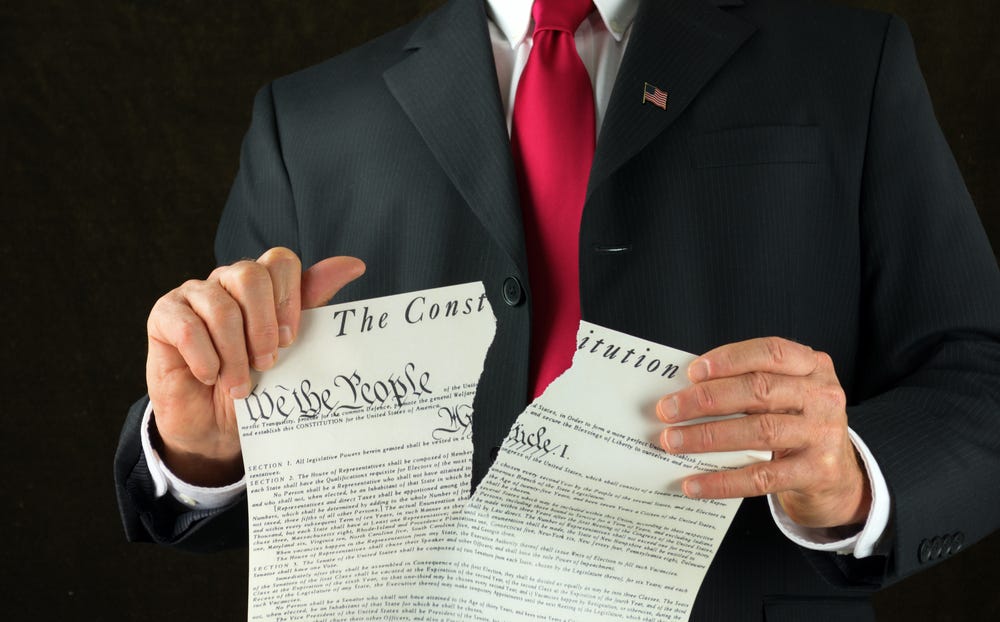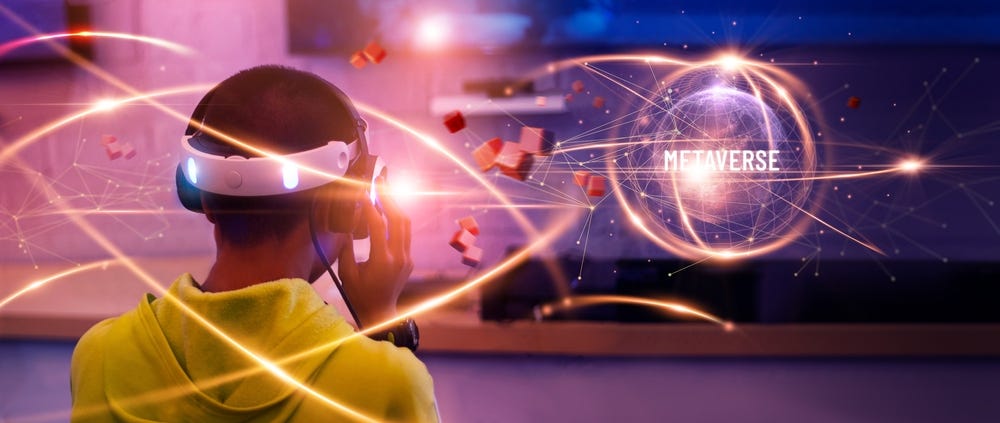E-Pluribus | January 4, 2023
Rescuing academia from the middle out; more censorship-by-proxy revealed in The Twitter Files; and the deceptions of our virtual world.
A round-up of the latest and best writing and musings on the rise of illiberalism in the public discourse:
Christopher J. Ferguson: Stuck in the Middle (of Academia)
To hear Stetson University’s Christopher Ferguson tell it, college professors feel like the rope in a tug-of-war. Writing for Quillette, Ferguson spells out what professors such as himself are subjected to from the left and right and what some of the solutions are to repair the institutions and calm the rancor.
Universities should commit to academic freedom: Many university administrators and policy makers have turned away from academic freedom, encouraging censorship of unpopular ideas (for one side or another). University administrators need to grow a spine and adamantly refuse to cede ground on free speech issues. All universities should adopt the University of Chicago style public commitment to free speech. Or even better, the Chicago Trifecta: free speech, institutional neutrality, and merit-only hiring/promotion.
[ . . . ]
Conservatives need to get involved but constructively: I have conservative students in my classes. They tell me they are often afraid to speak openly, particularly when challenging progressive world views. That is not acceptable. They should feel free to express their views and to challenge the views of centrists, liberals, and progressives. The Right is correct to lament this self-censorship. But too often, conservatives, though correct in their diagnosis, have offered unpalatable or even counterproductive solutions, ranging from discouraging attendance at universities to defunding them altogether.
[ . . . ]
Universities need fewer administrators: Part of the problem at universities is that there is far too much bureaucratic bloat. It’s no secret that university tuition has soared the last few decades. A good chunk of that is going to an ever-expanding pool of Vice Provost in Charge of the President’s Livery or Associate Dean of Toiletries. Many of these positions do little to advance knowledge, but rather often create bundles of red tape and fruitless initiatives that make busywork for everyone. And often these are the people who are promoting the progressive flapdoodle that I later must inform my students is false. A hiring freeze on these positions would be salutary. Let many retire without filling their position. This will reduce costs without firing anybody; and it will also partially dissipate the cloud of nonsense that hangs over the university and that makes our jobs as professors more difficult than they already are.
Read it all.
J.D. Tuccille: Twitter Files Reveal Politicians, Officials Evading the Constitution's Restrictions
To hear some tell it, the Twitter Files are a big nothing, but it’s difficult to see how the scoffers can explain away the interference government officials engaged in or attempted to engage in in recent years. J.D. Tuccille writes for Reason that government censorship is still censorship even if it’s done via manipulation or undue influence of the private sector.
The FBI and the Department of Homeland Security also leaned on the platform to suppress what officials considered election-related "misinformation." The files revealed internal disputes over what crossed the line, with decisions based on judgment calls. The employment of former feds and what The Dispatch's David French terms "an ideological monoculture" ensured that such decisions generally deferred to authority, especially after the Biden administration took office.
But Twitter isn't a special case. In 2021, President Joe Biden accused Facebook of "killing people" by allowing discussion of government-disfavored ideas about COVID-19 response. "White House Press Secretary Jen Psaki singled out a dozen specific anti-vaccine Facebook accounts and called on the platform to ban them," Reason's Robby Soave noted at the time.
Accusations of homicide by a president who commands regulatory authority aren't subtle. Whatever corporate executives think of those in power, they may consider it wise to do for government what is forbidden to the state.
"In America, government censorship is limited by the First Amendment," Will Duffield noted in a Cato Institute report about what he terms "jawboning." "Nevertheless, seizing upon the relationship between platforms and speakers, government officials increasingly demand that platforms refrain from publishing disfavored speech. They threaten platforms with punitive legislation, antitrust investigations, and prosecution. Government officials can use informal pressure—bullying, threatening, and cajoling—to sway the decisions of private platforms and limit the publication of disfavored speech."
Read the whole thing.
John Ketcham: Perverting Heaven
Technology almost always promises a better tomorrow and in many ways, lives have been improved through innovation and scientific discoveries. But as John Ketcham writes in City Journal, advancement can come with a dark side, and the full impact of our dalliances (or immersion) in augmented and virtual reality in increasingly online existences has yet to be understood or measured.
Under longstanding American law, the guarantee of free speech protects us only against government action. Except in narrow circumstances, private actors—including social media companies—are thus free to restrict speech and expression hosted on their property, and users are free to refrain from participating in the marketplace. Courts have repeatedly declined to designate Internet-based speech platforms as public forums, where the First Amendment would apply, though government officials’ use of social media accounts has already complicated the distinction. An immersive metaverse might digitally recreate the traditional public spaces—sidewalks, plazas, parks, and the like—where free speech is protected. Less straightforward parallels would no doubt create line-drawing challenges.
At the other end of these problems, the potential for unbounded individual expression presents its own worries. As in video games, metaverse users create their own digital personas, and others must accept the user in just the way he wishes to be perceived at that moment. Unlike in the physical world, where one’s claims about oneself are subject to the scrutiny of others’ mental and sensory assessments, the digital embodiment, accentuated via microtransaction purchases, may be all that other users ever see—never the flesh-and-blood human behind it. The ability to reconfigure personal identity at whim effectively imposes each person’s self-construction on everyone else in the metaverse, a prospect made more unsettling as virtual interactions increasingly supplant physical ones.
This individual autonomy will not inexorably yield better individuals. Instant gratification undermines the critical virtues of fortitude, the commitment to pursue goods despite their difficulty, and temperance, the resolve to abstain from pleasant but harmful things. Gone is the arduous process of self-mastery that comes with striving toward excellence despite adversity; gone, too, are the profound emotional and personal connections enabled by physical, face-to-face encounters. We risk trading a complete and fulfilled human life—made possible by hard lessons and often-troubled relationships—for a dopamine-fueled virtual alternative.
Read it all here.
Around Twitter
Conor Friedersdorf explains and defends the function that independents play in our political system:
Yesterday, Around Twitter noted the purported “mental health threat” posed by scavenger hunts. Today, Stanford has suspended a tree:
And finally, a short clip from Persuasion’s The Good Fight podcast where Shadi Hamid explains the concept of “democratic minimalism”:









